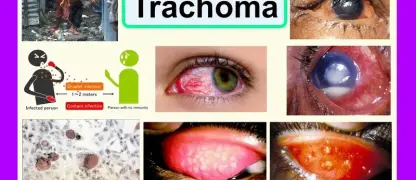Don't be unaware of the risks of Gastrointestinal Anthrax. This rare but severe illness requires immediate attention. Understanding its causes and symptoms is the first crucial step toward prevention and seeking timely, effective treatment.
What are the main causes of Gastrointestinal Anthrax?
- The primary cause is ingesting spores of the bacterium Bacillus anthracis, which can contaminate meat from infected animals like cattle, buffalo, or goats.
- Consuming anthrax from undercooked meat from an infected animal is the most common route of transmission for this form of the disease.
- The spores germinate in the gastrointestinal tract, releasing an anthrax toxin that causes severe inflammation, bleeding, and tissue damage throughout the digestive system.

Key symptoms of Gastrointestinal Anthrax to watch for
- Initial gastrointestinal anthrax symptoms can mimic food poisoning, including nausea, vomiting (sometimes bloody), loss of appetite, and a high fever.
- Severe abdominal pain anthrax is a hallmark sign, often followed by bloody diarrhea, swelling of the neck, and significant difficulty swallowing.
- The condition can rapidly progress to septic shock, a life-threatening medical emergency characterized by a sharp drop in blood pressure and organ failure.
How can you prevent Gastrointestinal Anthrax effectively?
- The most important anthrax prevention step is to avoid eating raw or undercooked meat, especially from animals that appeared sick before slaughter.
- Ensure all meat, particularly from livestock in rural areas, is sourced from reputable suppliers and cooked thoroughly to a safe internal temperature.
- High-risk individuals, like veterinarians and some laboratory workers, may be eligible for an anthrax vaccine after consulting with public health officials.
>>> Discover more: Understanding Relapsing Fever: A Tick-Borne Illness
Illustrated illustrations Anthrax (Gastrointestinal)






>>> See details: Toxoplasmosis: Risks During Pregnancy and Prevention
Gastrointestinal Anthrax is a medical emergency requiring rapid anthrax diagnosis and intervention. If you suspect anthrax exposure, seek immediate medical care. Early treatment for anthrax with antibiotics is critical for improving the prognosis.
>>> See more: Amebiasis: Symptoms, Treatment, and Water Safety






